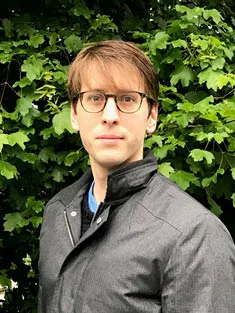Winner: 2020 Chemistry of Transition Metals Award
Dr Mark Crimmin
Imperial College London
For the discovery of an unprecedented transition metal complex with a hexagonal planar geometry.

Molecules based on transition metals are widely used in the physical and biological sciences. They play essential roles in the manufacture of pharmaceuticals, agrochemicals and polymers. They are also vital for the function of some proteins inside our bodies.
The properties of these molecules are related to the shape that atoms adopt when placed around the transition metal. Studies over the last 100 years have revealed a number of common shapes (or geometries) for transition metals, including octahedral, tetrahedral, square planar, linear, and others.
Dr Crimmin’s research team have discovered a molecule with six atoms each connected to a central transition metal but only weakly connected to each other, forming a hexagonal planar geometry. This geometry is extremely uncommon for transition metals and importantly the work was able to establish the underlying theory behind the unusual shape and associated chemical bonding. The discovery is a fundamental advance and in the longer term it may give new design principles for how to use molecules based on transition metals to improve quality of life through chemistry.
Biography
Dr Mark R. Crimmin graduated from Imperial College London in 2004 and completed a MSc by research in organic synthesis at Bristol University under the supervision of Professor Aggarwal. He received his PhD in main group chemistry and catalysis from Imperial College London in 2008 supervised by Professor Mike Hill (now at Bath) and Professor Tony Barrett. In the same year, he was awarded a Royal Commission for the Exhibition of 1851 research fellowship which he took to UC Berkeley to study with Professor Bob Bergman and Professor Dean Toste.
In 2011, he returned to London as a Royal Society University Research Fellow, initially at UCL and now back at Imperial. Dr Crimmin was appointed as a Lecturer in 2011, Senior Lecturer in 2016, and Reader in Organometallic Chemistry in 2019.
It is vital that we collaborate and bring together expertise and skills from different areas - I think this is one of the true strengths of modern science.
Dr Mark Crimmin
Q&A
Why do you think teamwork is important in science?
Teamwork is central to science. As our knowledge continues to expand it is very hard for any single person to have complete command of many subjects or techniques. It is impossible for individuals to make the strides needed to tackle grand challenges in science such as climate change and chemical recycling.
It is vital that we collaborate and bring together expertise and skills from different areas. I think this is one of the true strengths of modern science. Success really depends on teamwork. Diverse teams that include people with different perspectives and different training are the most successful. Imperial College, being in the heart of London, is an excellent place to carry out research. We are lucky enough to attract great people from across the world with diverse backgrounds and this makes it a really special place to work.